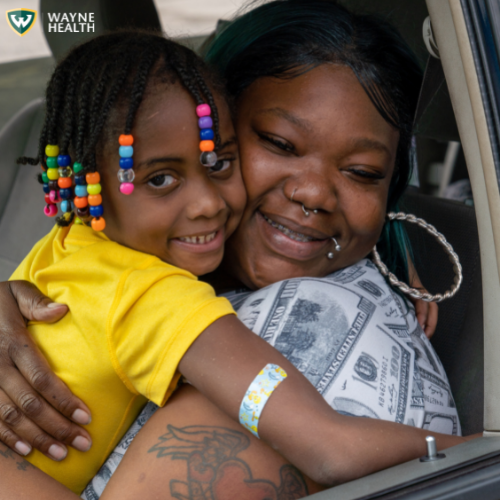Why it’s important to discuss vaccinations with your child’s pediatrician
April 25, 2022
By Samantha McPharlin, M.D., Department of Family Medicine
As a Family Medicine doctor, I routinely talk to new parents and advise them to get their babies vaccinated. And sometimes I see fear or hesitation in their eyes. Does my baby really need to get these vaccines? Is it worth the temporary tears? Is it safe?
Sometimes it is easy to forget the power of childhood vaccines because of their effectiveness. When protection works, we don’t notice anything amiss. Parents who have gotten their babies vaccinated don’t get a text alert years later saying, “FYI: little Mya successfully avoided catching measles at preschool today because she already had antibodies.” But the numbers can remind us of all the days that our kids are NOT spending sick in bed, sick in the hospital, or worse.
For example, the U.S. saw its worst polio outbreak in 1952. That year, 57,628 cases were reported (the majority in children), 3,145 people died, and 21,269 were left paralyzed. It was common for people to have permanent disabilities from polio, and many surviving children were left needing crutches, wheelchairs, or braces for the rest of their lives. Incredibly, since the routine vaccination of polio, it has now been eradicated from the Western Hemisphere. Another example is Haemophilus Influenzae type B (Hib) which can cause serious pneumonia or meningitis (an infection of the tissues surrounding the brain). Prior to the release of the Hib vaccine in 1985, it caused about 20,000 serious pediatric cases annually in US and was the leading cause of mental retardation after the newborn period. In the last 10 year there have been less than 200 cases annually, and a rough estimate attributes the vaccine to saving at least 1,100 lives annually through prevention.
These are just two of the nine diseases that babies can be protected against prior to their first birthday. The ages at which vaccines are offered are carefully decided based on many factors including how soon a child needs protection, how long antibody levels last, and how well the vaccine has been shown to build an immune response (which varies by age). All recommended routine vaccinations are rigorously tested and very safe. The possible side effects are generally mild and the risks of not getting vaccinated far outweigh the very small risks of adverse vaccine effects. The reason we don’t have to worry about our kids getting polio or Hib anymore (or diptheria, or measles, or hepatitis B, or tetanus, etc.) is because vaccines are doing their job. During April 26 through May 2, we keep this in mind as we celebrate National Infant Immunization Week. The Family Medicine and IM Pediatrics doctors at Wayne Health are proud to offer all recommended childhood vaccines to best protect our patients and their families. We are also happy to discuss vaccine recommendations so you can make the best health choices for your children.
To request an appointment with Dr. McPharlin, visit our appointments page.
